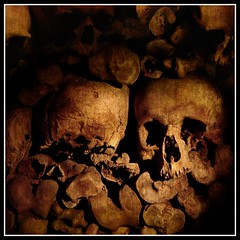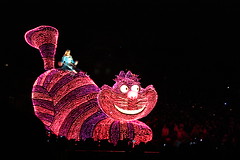In philosophy, theory (from ancient Greek theoria, θεωρία, meaning “a looking at, viewing, beholding”) refers to contemplation or speculation, as opposed to action.[1] Theory is especially often contrasted to “practice” (Greek praxis, πρᾶξις) a concept that in its original Aristotelian context referred to actions done for their own sake, but can also refer to “technical” actions instrumental to some other aim, such as the making of tools or houses. “Theoria” is also a word still used in theological contexts.
“Hollie Baylor: I was still waiting for everything to start, and now it’s over” (Elizabethtown, Movie)
In terms of developing theories, why do we do it? Most likely because we want to know. In a very simple form, this is a type of gnosis. We look to information to inform us of something that lies outside of ideology. I think it also comes down to how we view God. Sometimes it does seem we use theology to prove to God who she should be. In this light, theology as a theory then becomes a tool of coercion and/or measurement. And not only towards the divine, but towards one another.
In this moment, our theories on the Divine are to prohibit people from believing or living certain ways. Yet, the hope of any religion is to make humanity better, right? Some might agree that to be better at being human is to be better at being free. So if religion has come to a place where it denies the very element it inherently claims it holds, then it has become something other than religion.
We’ve entered into an interesting era in history where people are beginning to ask if history is all we get. Not just in Christianity, but within the framework of the world. We are beginning to see things differently, and I think this is a great time for transformation. I think a good place to start is to realize that now doesn’t have the last word for what is to come.
There is more to God, more to Jesus, more to Christianity than what has previously been offered. But, I have to be honest, I don’t think this exciting new change includes theology. Let me explain. When I used the word theology I am speaking of the theory of theology. Theology as Ideology. Theology as a static entity that exists before the liminal threshold of ideological transformation.
The nation of Israel in Ezekiel 37 are represented as a metaphorical pile of bones. These bones are awaiting resurrection. Awaiting new life. These bones are lying in a deep valley. Darkness surrounds this nation of people. It is a dark time. They have systematically lived their lives to the letter of the law, and God enters the scene and promises to give them a new heart. This is the thing that sustains life, the heart. Israel has lost her heart.
To the point of no longer being human.
She is the object that still persists beyond existence. Although there is no flesh in sight, God responds to Israel as if she is embodied. In this moment, there is a realization that occurs, that God’s Gaze* is actually Israel’s Gaze*. The only way God can respond to Israel as if she is embodied in this metaphor is because God is full embodiment of the disembodied divine. God’s ability to interact creates the illusion of embodiment. The reality in the parable is that Israel is de-fleshed.
Theology has become the pile of bones. It has become embodied by history, assumptions, subjective truths and alienated concepts that have been kept in tow by those before us.
If we simply believe something that has either been socially or historically accepted as truth without ever questioning the intentions of the writer or the point that is being made, than we are not believing, we are simply believing under the guise of belief. In this sense the system itself is mediating our belief. Theology has become the mediator of our belief.
It believes for us.
In a post-theological world God exists not because theology says so, but because God is pure in the Hegelian sense. He exists as Being, but also exists as non-being. This much like the character of the Cheshire Cat who’s mouth exists without his body. It is the disembodied reality that is also the embodiment of reality. Rather than one being different from the other, they are one in the same. Or like how the Matrix is something that is always spoken of but never fully realized. In a post-theological world, there is no system in place to describe God because every system does not have ability to account for a God is consistently becoming.
This is why Heresy as the New Theology must be taken seriously and not simply because it is inflammatory. When I speak of heresy, I do not just mean what is deemed as theoretically unsound by the mass majority, but as a positive deconstruction that grows through the systems we create round the Divine. It is positive in that it opens up endles possibilities for discovery. It leaves holy space for unholy moments. It invites us to see that this Being beyond being lies outside of our system of thought. This is why the mystics are so important to the general religious landscape, they remind us the inherent inadequacy of our words. We must exchange awe for literal expression.
It’s that moment where we experience the Divine to the point where we just can’t seem to fit God in our rhetoric. This is a post-theological moment. This is a moment of heresy. Heresy leads those with theories to action. God illicits darkness because that is where she belongs. God had to create light, because she exists there. This isn’t the darkness that is easily compared to evil acts, but rather the darkness that brings distinction, paradox, inconsistency.
We need this stark inconsistency to understand that we don’t understand God and that is a good thing. So what do we do with God being near, and the God who is far? They are one in the same. His immanence is her transcendance. In a Post-Theological world God resides in inconsistency because that’s where the Divine makes sense.
So, what does this world look like without ‘Theology’? What it means is that competition and apologetics are near non-existent in their current forms. That we don’t have to be right. That beyond our theories lies humanity at its best. This may sound like one idea replacing another, but it is more than that, it is the ability to see that multi-culturalism doesn’t just lie in the culture itself but is understood as something comprised of many things. So, a heretical multiculturalism seeks to open space where there was no space to be open prior to the post-theological world.
This heretical multi-culturalism asserts that truth much like Hegel’s pur God is just as becoming as the Divine itself. What does this mean then for all of us? It means we have to lace up our boots, pull out our camping gear, bring some rations because we have no idea where this might end, but we know we are moving forward…
* Lacan’s Gaze is simply defined as : “The ‘Gaze’ is a psychoanalytical term brought into popular usage by Jacques Lacan to describe a condition where the mature autonomous subject observes “the observation of himself” in a mirror.














